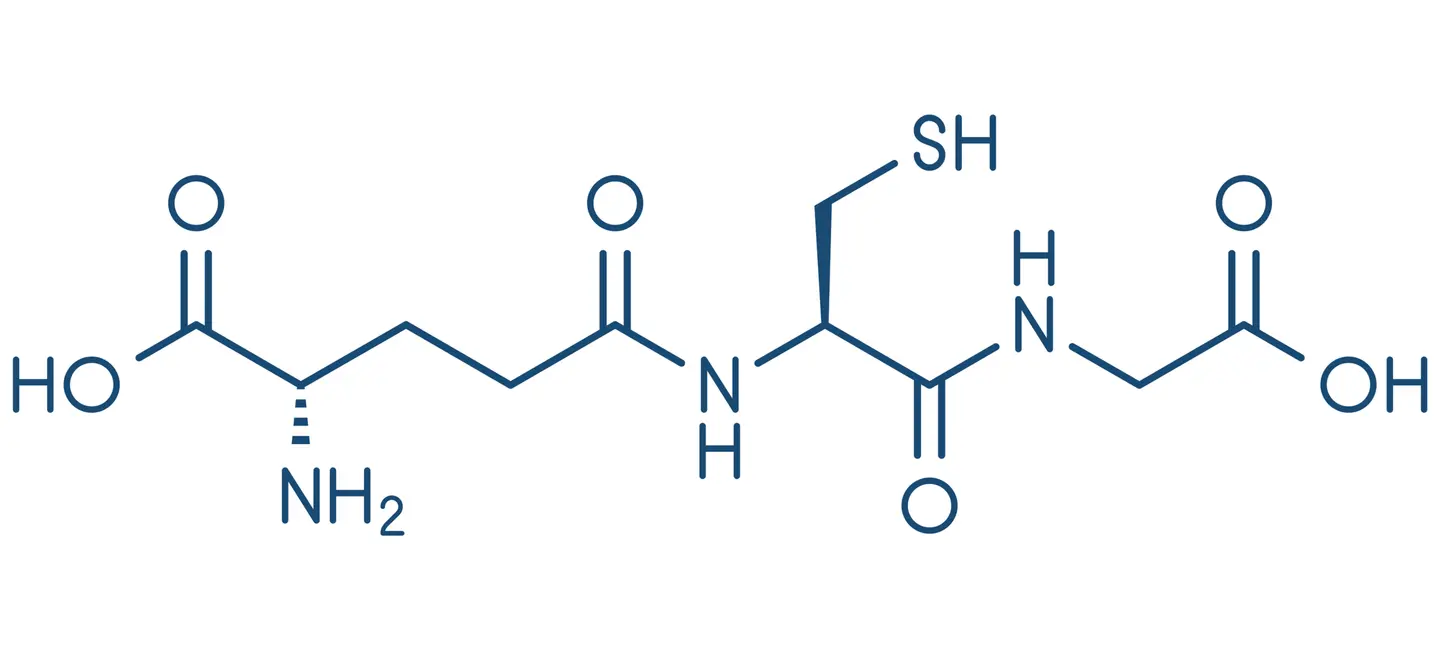
Glutathione is a substance made from the amino acids glycine, cysteine, and glutamic acid. It is produced by the liver and involved in many body processes.
Glutathione is involved in tissue building and repair, making chemicals and proteins needed in the body, and in immune system function.
People take glutathione for aging, alcohol use disorder, liver disease, heart disease, and many other conditions, but there is no good scientific evidence to support these uses.
Is It Effective?
NatMed Pro rates effectiveness based on scientific evidence according to the following scale: Effective, Likely Effective, Possibly Effective, Possibly Ineffective, Likely Ineffective, Ineffective, and Insufficient Evidence to Rate.
- Nerve damage caused by the drug cisplatin. Taking glutathione by IV seems to help prevent nerve damage and other toxicities from the cancer drug cisplatin. IV products can only be given by a healthcare provider.
There is interest in using glutathione for a number of other purposes, but there isn't enough reliable information to say whether it might be helpful.
Is it Safe?
When taken by mouth: Glutathione is possibly safe when used in doses up to 500 mg daily for up to 2 months. There isn't a lot of information available about its possible side effects.
When inhaled: Glutathione is possibly safe. There isn't a lot of information available about its possible side effects.
When applied to the skin: There isn't enough reliable information to know if glutathione is safe. It might cause rash when applied to the skin.
Special Precautions & Warnings:
Pregnancy and breast-feeding: There isn't enough reliable information to know if glutathione is safe to use when pregnant or breast-feeding. Stay on the safe side and avoid use.
Asthma: Do not inhale glutathione if you have asthma. It can increase some asthma symptoms.
It is not known if Glutathione interacts with any medicines. Before taking Glutathione, talk with your healthcare professional if you take any medications.
There are no known interactions with herbs and supplements.
There are no known interactions with foods.
There isn't enough reliable information to know what an appropriate dose of glutathione might be. Keep in mind that natural products are not always necessarily safe and dosages can be important. Be sure to follow relevant directions on product labels and consult a healthcare professional before using.
Information on this website is for informational use only and is not intended to replace professional medical advice, diagnosis, or treatment. While evidence-based, it is not guaranteed to be error-free and is not intended to meet any particular user’s needs or requirements or to cover all possible uses, safety concerns, interactions, outcomes, or adverse effects. Always check with your doctor or other medical professional before making healthcare decisions (including taking any medication) and do not delay or disregard seeking medical advice or treatment based on any information displayed on this website.
© TRC Healthcare 2024. All rights reserved. Use and/or distribution is permitted only pursuant to a valid license or other permission from TRC Healthcare.
